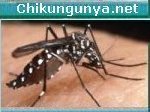Date: Thu 16 Jan 2008
Source: AGD. NL [trans. from Dutch Mod.AS, edited]
< http://www.agd.nl/1044335/Nieuws/Artikel/LNV-vrijwillige-vaccinatie-blauwtong.htm>
The [Dutch] Ministry of Agriculture pleas for a voluntary vaccination
against bluetongue. This has emerged during a meeting on bluetongue
in Brussels. "The introduction of compulsory vaccination must have a
clear reasoning; its necessity should be readily explainable in order
to convince the farmers". Past experience regarding compulsory
vaccination -- as related to IBR -- was rather negative; therefore, I
support voluntary vaccination", said Peter de Leeuw, chief
veterinarian in the Ministry of Agriculture.
De Leeuw regards the eradication of bluetongue virus to be the best
solution, provided this is achievable. "To attain this goal, a common
policy of affected countries is required, with the necessary
financial support secured for several years. Currently, these
conditions are not fulfilled".
The European Commission stated during the conference that a minimum
of 80 percent of the animals susceptible to bluetongue must be
vaccinated if financial support is anticipated. "I am convinced that
we, in the Netherlands, can achieve 80 percent even on a voluntary
basis", said De Leeuw.
A main question is the necessity to include in the plan the
vaccination against bluetongue of animals which are immune, since
they have already undergone infection. France has a different view on
this issue, since they see difficulties in the registration of
animals which have been infected. France supports a total, compulsory
vaccination scheme.
[Byline: Mariska Vermaas]
--
Communicated by:
ProMED-mail <promed@promedmail.org>
*****************************************************************
Date: Wed 16 Jan 2008
Source: Reuters [edited]
<http://uk.reuters.com/article/scienceNews/idUKL1614933720080116>
EU countries should order now a new vaccine to fight a resurgence
this year [2008] of bluetongue, the virus that ravaged northern
Europe's cattle and sheep in 2007, EU Health Commissioner Markos
Kyprianou said on Wednesday [16 Jan 2008].
Speaking at a one-day conference, Kyprianou said central EU funding
would meet the costs of buying the vaccine, likely to be available by
the spring, and half the costs of administration.
Several drugs companies have been developing the vaccine for the
particular strain of bluetongue that occurred last year [2007] in
northern Europe, serotype 8, one of 24 recognised strains. Until now,
no vaccine for that strain has been available.
The companies include Pfizer Inc., Intervet, now owned by U.S.
pharmaceutical company Schering-Plough Corp and Merial Ltd, a joint
venture between Merck & Co. and Sanofi-Aventis.
"In principle, 100 percent of the costs of the purchase of the
vaccine and 50 percent of the costs of the application of the vaccine
will be covered by the Community budget," he said.
That funding would be subject to certain ceilings that would be set
once the vaccine's final cost was known, Kyprianiou said, adding that
between 150 and 200 million doses would probably be needed for an
emergency vaccination campaign during 2008.
European Commission experts have estimated the cost of one vaccine
dose at around 0.50 euro (USD 0.742). While that price will probably
be fixed, administration costs vary widely across the EU's 27
countries, mainly due to differing vets' salaries.
Spread by midges, bluetongue had previously tended to occur in more
southerly parts of the European Union until 2006, when it moved much
further north. Last year [2007] was even worse, with more than 50 000
confirmed cases in 11 countries.
Apart from Italy, Portugal and Spain, which have a history of the
disease in other serotypes, countries affected by serotype 8 in 2007
were Belgium, Britain, Denmark, France, Germany, Luxembourg, the
Netherlands and Czech Republic [Switzerland, a European non-member,
was affected as well. - Mod.AS].
"The Commission now urges the member states concerned to complete ...
the necessary tendering procedures and place actual orders for the
vaccines which are now becoming available so that they are ready to
go when the time comes," Kyprianou said.
Bluetongue does not affect humans, and there is no risk of
contracting it by consuming milk or meat from infected animals.
The disease is characterised by inflammation of the mucous membranes,
congestion, swelling and haemorrhages. Sheep, rather than cattle, are
often the worst affected animals.
Bluetongue vaccination has been successfully used in a number of EU
countries that have been affected by the disease. Italy, Spain,
France and Portugal have all used vaccination. Vaccines against
bluetongue can either be inactive vaccines or modified live virus
(MLV) vaccines.
Inactivated vaccines, administered in 2 separate doses, can fully
protect animals for a long period, while MLVs create protective
immunity after a single inoculation.
[Byline: Jeremy Smith]
--
Communicated by:
ProMED-mail Rapporteur Mary Marshall
[Information on the incidence of new BTV-8 cases in Europe since the
middle of December is rather scanty and seems to lack accuracy.
According to EU's Animal Disease Notification System (ADNS, last
updated 11 Jan 2008, see at
<http://ec.europa.eu/food/animal/diseases/adns/table_11_2008/adns_110108_en.pdf >),
a total of 3 new cases have been recorded since 1 Jan 2008, all in
France. Are these indeed new cases, within the period which is
expected to be "non-vector"?!
Since the publication of Sabine Zentis' remarks concerning the need
for experts' and researchers' contributions (see in posting
20071219.4080), the scope of (publicly available) knowledge has not
widened. Enhanced research efforts addressing the epidemiology of
BTV-8 within the European realm, in particular related to its
entomological aspects, over-wintering mechanism and genetic
susceptibility, seem to still be needed. Animal breeders in 8
European countries have been severely affected by BTV-8 since its
initial discovery (Belgium, August 2006). Animal suffering is another issue.
The 3rd disease season is expected to commence in the due spring
2008, when large populations of susceptible animals may be exposed to
BTV-8 for the 1st time, particularly in areas such as Wales and
Scotland, but also in other vast regions. Their timely vaccination is
essential.
To help close the gap between gained information and its early field
utilization, ProMED-mail has offered its services for the early
publication of preliminary results, provided they address
field-related issues and are of a problem-solving nature.
An EU map of BTV restriction zones, updated on 14 Jan 2008, is available at
< http://ec.europa.eu/food/animal/diseases/controlmeasures/BlueTongue_RestrictedZones_2008.jpg>.
- Mod.AS]













No comments:
Post a Comment